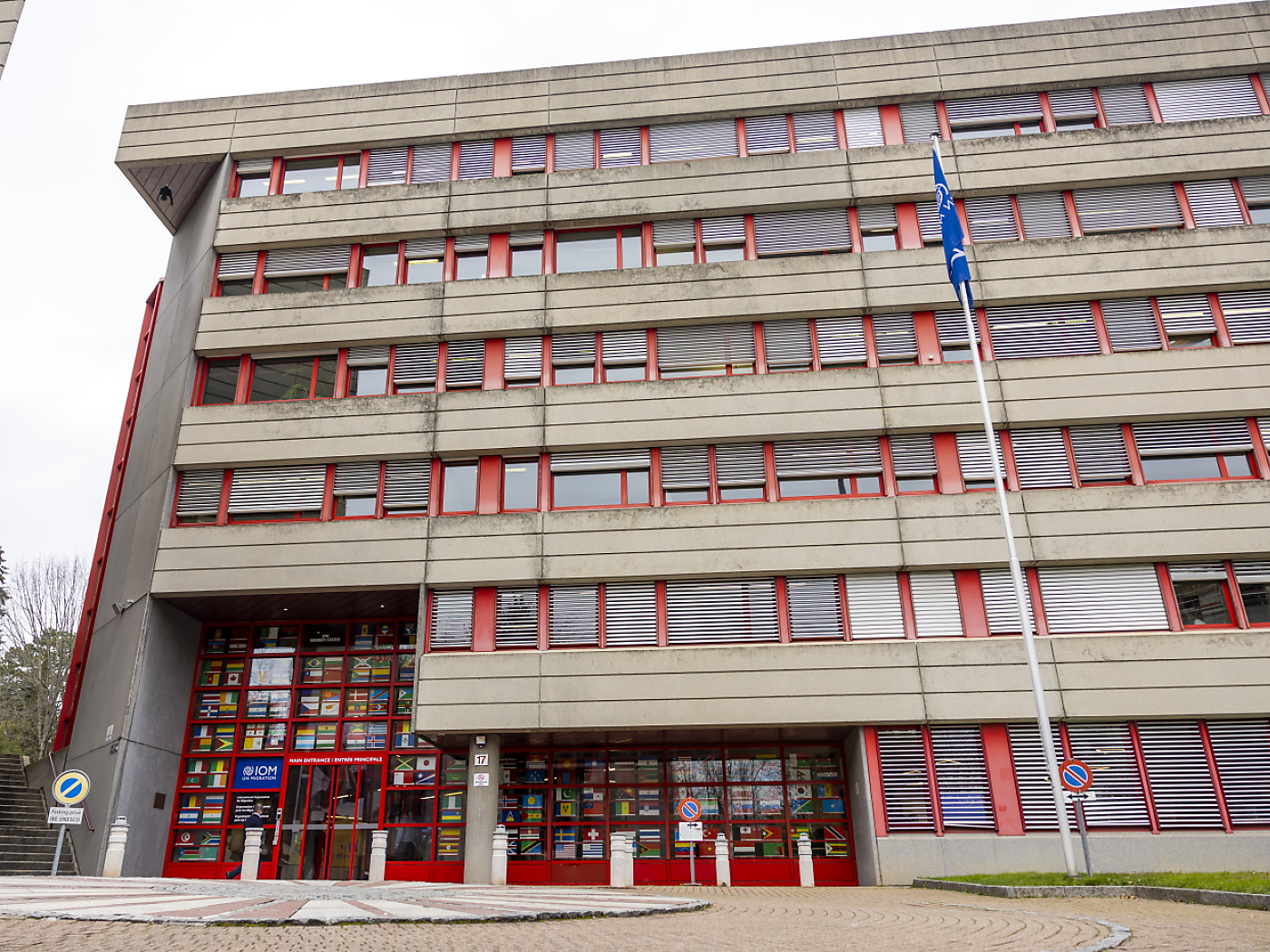
Geneva-based UN migration agency details swingeing job cuts

The International Organisation for Migration (IOM) has confirmed massive staff reductions, which will also touch its Geneva headquarters.
+ Get the most important news from Switzerland in your inbox
Some 6,000 members of staff have been affected worldwide by a freeze in United States funding, including more than 250 in Geneva.
+ Foreign aid cuts: where does Switzerland stand?
“These measures are intended to ensure that the IOM can continue to deliver essential humanitarian assistance to migrants and vulnerable communities around the world”, says the UN agency.
According to its estimates, it will face a 30% cut in its funding this year, mainly as a result of US President Donald Trump’s decision.
+ Geneva plans to pay NGO wages after US foreign aid freeze
Several media outlets had already revealed the cuts, particularly at headquarters, where around 20% of the workforce is based in Geneva. In addition to job cuts, the lack of funding is having serious consequences, exacerbating humanitarian crises and undermining support for displaced populations, adds the IOM.
The IOM works on the basis of a funding model for its projects, established by its member states. This approach allows a degree of flexibility, but it is also problematic if a major donor withdraws.
Many people will be made redundant, the IOM admits. Positions will be moved to regional offices and to lower-cost countries. Better collaboration with other humanitarian organisations is desirable.
But the international community must not put migration on the back burner, the UN agency insists. It will continue to work with the member states.

More
Geneva-based UN migration office cuts fifth of workforce
Translated from French with DeepL/mga
This news story has been written and carefully fact-checked by an external editorial team. At SWI swissinfo.ch we select the most relevant news for an international audience and use automatic translation tools such as DeepL to translate it into English. Providing you with automatically translated news gives us the time to write more in-depth articles.
If you want to know more about how we work, have a look here, if you want to learn more about how we use technology, click here, and if you have feedback on this news story please write to english@swissinfo.ch.

In compliance with the JTI standards
More: SWI swissinfo.ch certified by the Journalism Trust Initiative






























You can find an overview of ongoing debates with our journalists here . Please join us!
If you want to start a conversation about a topic raised in this article or want to report factual errors, email us at english@swissinfo.ch.